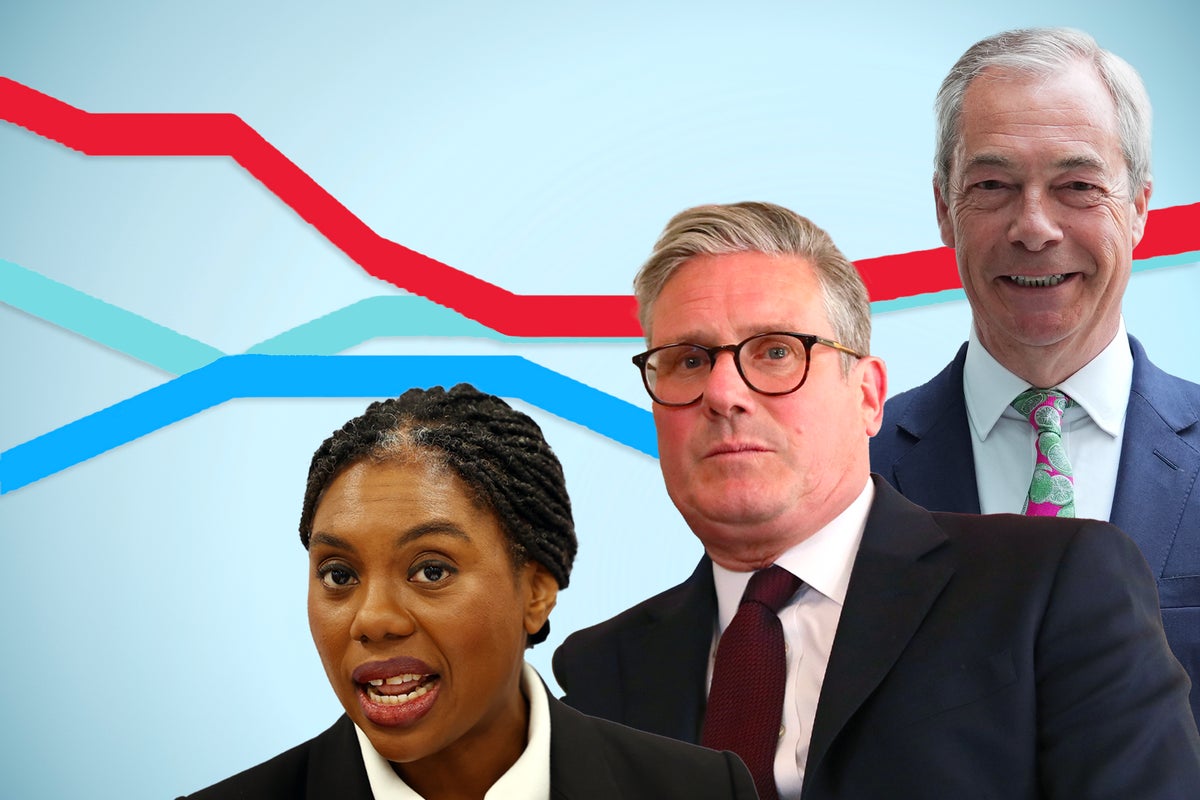Nigel Farage’s Reform UK have hit 30 per cent for the first time in the weekly tracker poll conducted by Techne UK for The Independent.
After a massive victory in May’s local elections where the party won 10 councils and 677 seats, Reform’s climb in the polls continues while the slide continues for both Labour and the Tories.
Ahead of the local elections on 1 May Reform were tied with Labour on 25 per cent each but have gained five points in the last month while Labour have fallen three points to 22 per cent.
Meanwhile, the Tories who were on 23 per cent just before the local elections have seen their support collapse six points in a month to 17 per cent, now just one point ahead of the Lib Dems on 16 per cent. The Greens have also benefited rising by two points to 9 per cent.
Techne UK’s chief executive Michela Morizzo said: “It seems the political landscape in the UK is evolving more rapidly in a totally new direction than ever before in history.”
This week’s polling revealed that voters aged over 45 are more likely to support Reform with backing for Farage increasing the older people get.
Voters aged 35 to 44 are evenly split at the top between Labour and Reform while voters under 35 are more likely to support Labour.
More than half (52 per cent) of Tory voters from last year’s election have now switched to Reform. However only 10 per cent of Labour’s 2024 election voters back Reform now with more (12 per cent) going to Lib Dems.
The figures will only add to questions about Tory leader Kemi Badenoch’s ability to survive while they also appear to have pressured Sir Keir Starmer into a U-turn on winter fuel.
Since Sir Keir Starmer’s government took over, Labour have seen a decline in support. The Conservatives, too, have been unable to keep momentum in opposition, and have fallen to 21 per cent support.
Meanwhile Reform, which won an unprecedented 14.3 per cent of the vote in the July general election, has continued to make steady gains, overtaking the Tories in January, and now sit alongside Labour at the top.
It is important to note, however, that national voting intention polls do not tend to accurately reflect the picture at local elections, but they can provide a useful snapshot of political sentiment.
For some voters, political parties play little part in their choice for local councillors, while others might vote solely based on party affiliation.



